| Overview |
| Message from the President |
| Contact |
| Map of Campus |

I. Overview
School of Computer Science and Information Engineering consists of four departments: Computer Department, Software Engineering Department, E-Commerce Department, and Communication Engineering Department. It is a secondary college with good quality of students and the employment situation.
The school mainly trains application-oriented senior talents in Computer and Electronic Information. Graduates can be employed in the IT industry and IT departments of various industries. The IT professional background with nautical characteristics makes our graduates welcomed by various industries, and even more, favored by the communication and IT departments of the shipping industry.
The school has 6 undergraduate majors comprising Computer Science and Technology, Communication Engineering, Electronic Commerce, Electronic Information Engineering, Software Engineering, Internet of Things Engineering. It currently has 1816 full-time students.
The school has a team of teachers with rigorous scholarship and noble ethics. There are 75 full-time teachers, among whom 11 are professors, 26 are associate professors and 21 are with doctoral degrees, they possess a high level of professional knowledge and ability, rich experience in teaching and scientific research, many of them graduated from domestic well-known key universities.
The school has nearly 1000 professional computers, advanced experimental equipment with a total value of more than 20 million yuan. It has 21 laboratories and many off-campus practice teaching bases, including the provincial experimental teaching demonstration center, communication engineering, big data technology, cloud computing, software engineering and testing, IoT technology, business intelligence, etc., providing students with advanced practical and teaching conditions.
The school actively promotes the integration of industry and education and the combination of Industry, University and Research. It employs experts inside and outside the university to form a professional construction committee, cooperates with many IT enterprises in school-enterprise education, and jointly builds practical teaching bases. The school focuses on the cultivation of students' professional foundation and practical application skills, to meet the demand of the IT industry for advanced application-oriented talents.
In addition to the teaching and scientific research of relevant professional courses, the school is also responsible for the teaching of basic computer and electronic technology courses of all majors in the University. In combination with professional teaching and scientific research, it actively carries out professional technical training and certification. The school currently has a national high-tech examination station, a National Computer Rank Examination center, and several research institutes and research centers.
II. Undergraduate Programs
1. The major of communication engineering began with the major of maritime radio when the University was founded in 1964. The major of communication technology was established in 1999. The first undergraduate majoring in communication engineering was enrolled in 2015. In 2018, the main discipline of the major, "information and Communication Engineering", was selected into the "Characteristic University promotion plan" among the key construction disciplines of the "first-class, short board and strong characteristics" promotion plan of Guangdong Province, This discipline will continue to be selected in 2021. Based in Guangzhou and facing south China, this major serves the needs of communication technology for the construction of Guangzhou international shipping center and regional economic development, cultivates and grasps a solid theoretical foundation, is familiar with the basic principles, professional skills and research methods of communication, has the ability to meet the needs of navigation, transportation and regional economic and social development, and can engage in research in information and communication engineering in relevant fields Applied senior talents in design, development, manufacturing, application, maintenance and management.
Circuit analysis, analog electronic technology, digital electronic technology, high frequency electronic circuit, signal and system, communication principle, digital signal processing, single chip microcomputer principle and application, C language program design, data communication and computer network, embedded system and microprocessor, mobile communication, optical fiber communication technology, satellite navigation and positioning principle and application, etc.
Communication engineering has one department head and 22 full-time teachers, all of whom have master's degrees or above, including 6 professors, 6 associate professors, 10 lecturers and 13 teachers with doctoral degrees.
The communication engineering specialty now has laboratories such as communication integration, electronic integration, Beidou satellite precision navigation and AIS inland navigation security platform, which basically meet the teaching and scientific research requirements of the specialty.
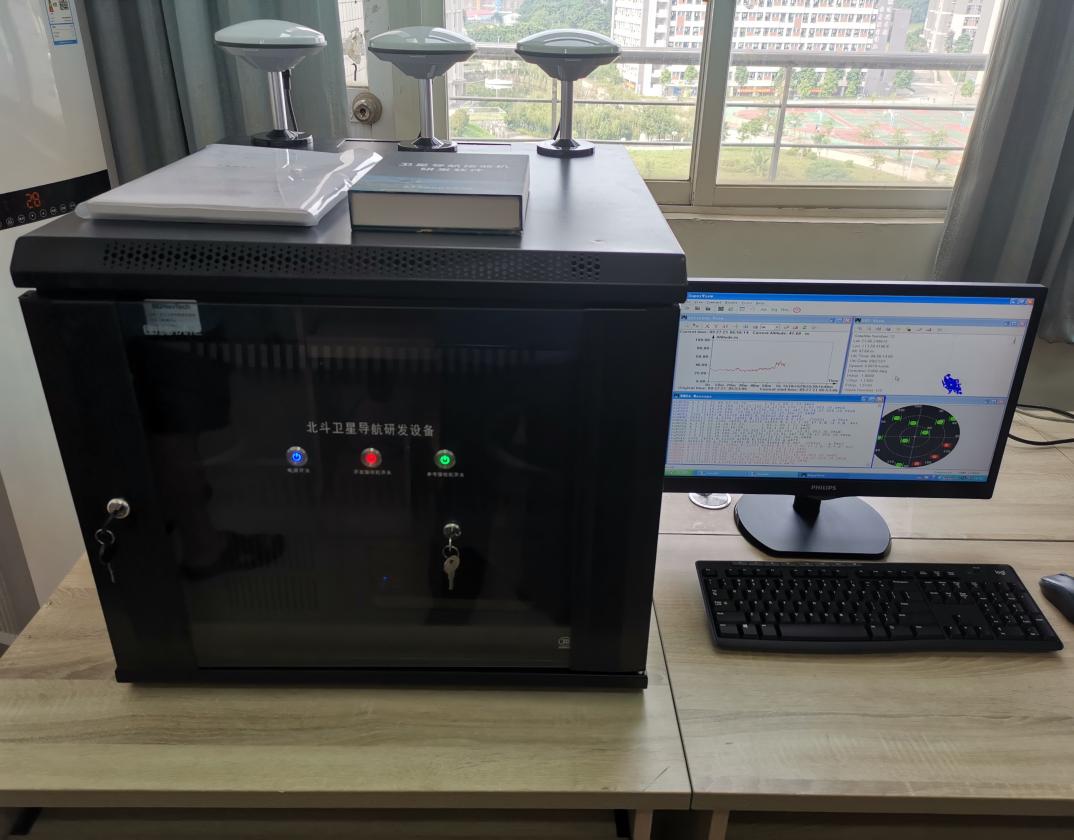
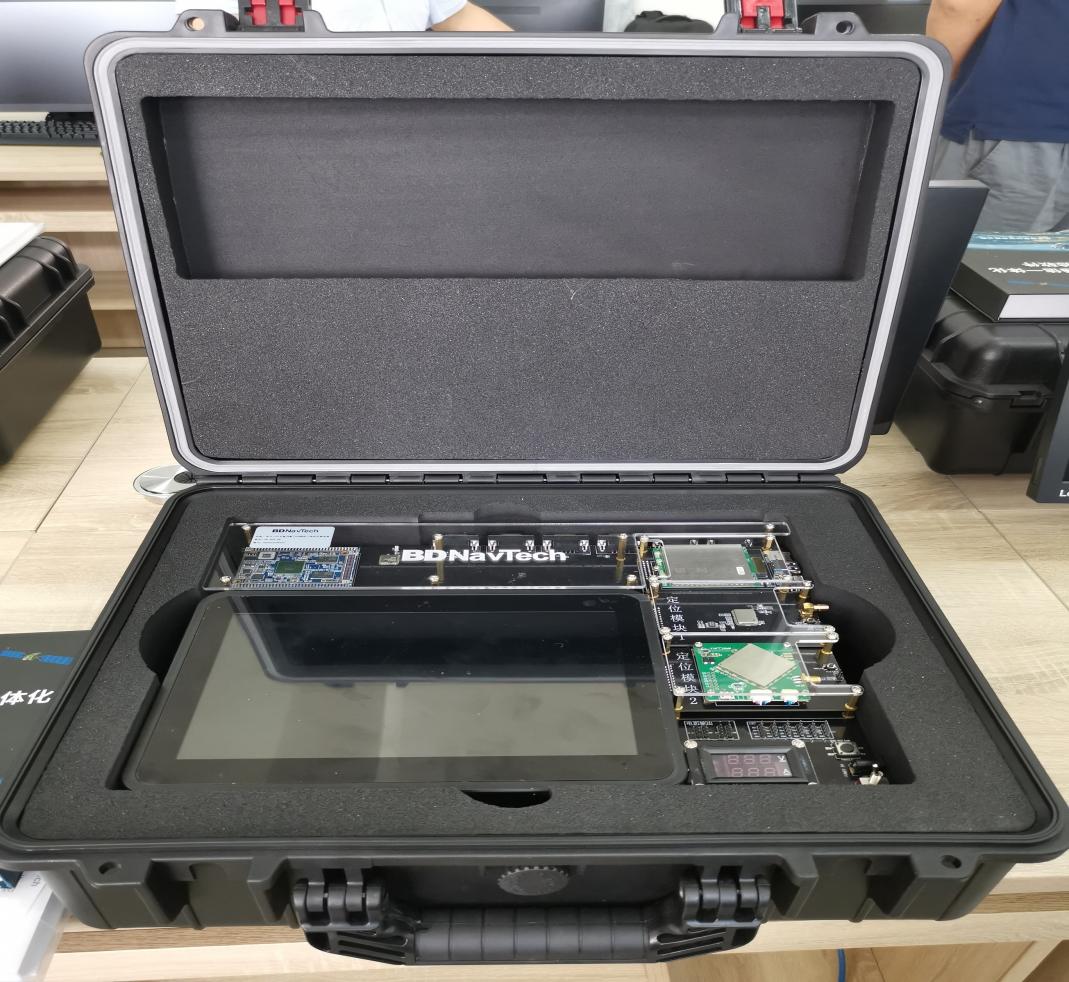
Beidou third generation satellite navigation and 5g communication integrated experimental equipment
Satellite navigation and traffic applications, time and location enhancement in maritime areas
2. The major of Computer Science and Technology mainly cultivates students who have a comprehensive grasp of computer software and hardware theory and basic skills related to computer science and technology. Computer science and technology graduates can engage in computer software and hardware development, network security maintenance, and intelligent information processing, etc. The students are applied senior professionals with good comprehensive qualities and innovative spirit. This major takes subject competitions as the carrier, with the purpose of "promoting teaching and learning by competitions". In recent years, the student team of this major has achieved good results in the national college student information security competition and various innovative practical ability competitions. This major has jointly applied for the China-Australia "3+2" Master of Computer Science and Technology Joint Training Program with the University of Technology Sydney, Australia, with obvious international characteristics.
3.The major of e-commerce mainly meets the needs of the information industry in the Guangdong-Hong Kong-Macao Greater Bay Area, Cultivate high quality applied talents with humanistic cultivation, professional ethics, social responsibility and teamwork spirit, Students in this major will master the basic theoretical knowledge, skills and methods in e-commerce field, their will be trained with e-commerce system planning, design, operation management, business data mining and analysis and other engineering skills. Graduated students can engage in web site design, Internet marketing, sales, business, computer operations, and data analysis, etc. in enterprises and public institutions.
(1)characteristics
ü Undergraduate program meets the National strategic emerging industry, training e-commerce engineering technology talents.
ü Running on the industry-university cooperation and education platform of the Ministry of Education.
ü Enrollment began in 2003, run for a relatively long time.
ü High enrollment and employment rates
ü Innovate the talent training model through school-enterprise cooperation,promote learning through competition.

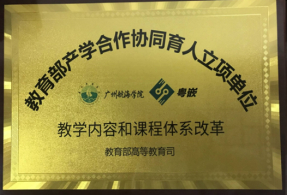
Education platform of the Ministry of Education
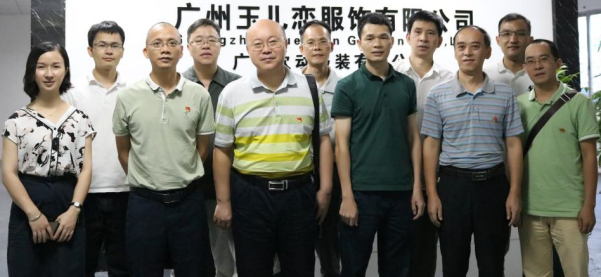
Off campus Innovation and entrepreneurship practising site
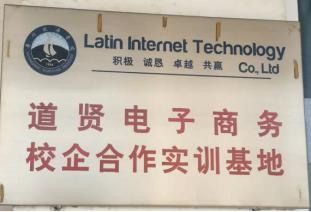
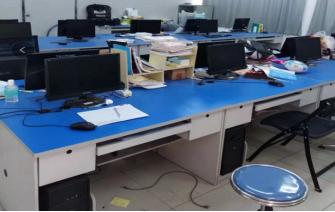
On campus Innovation and entrepreneurship practising site
(2)Achievements of education and research
The faculty of this major take an active part in educational and scientific research. In recent years,they undertook about 15 scientific research projects at different levels, from units such as Guangdong Provincial Science Technology Department, Guangdong Provincial Education Department, Ministry of Education, Guangzhou Bureau of Science Technology Department, etc. Professional teachers published more than 10 papers in high quality journals, and also published 4 textbook.
Students of e-commerce participate in various innovation and entrepreneurship activities, in recent years, they participate in National and provincial level activities more than 25 times and obtained some award in the field of innovation and entrepreneurship experience. Now this major has two innovation and entrepreneurship practising site, one of them has established an e-commerce platform MU, which has obtained more 300 thousand yuan external investment.the MU now has more 2 thousand internet visitors,and its transaction amount exceeds 52 thousand yuan.
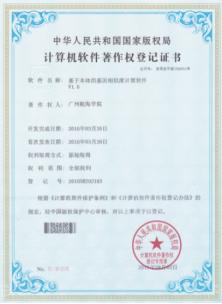
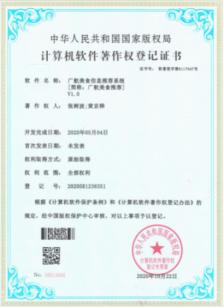
Software copyright obtained by teachers and students
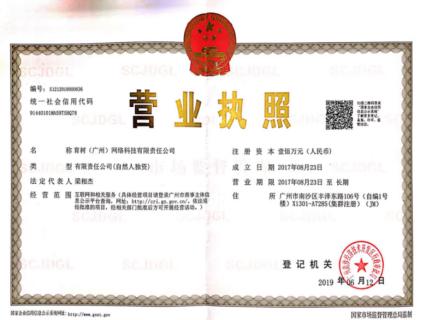
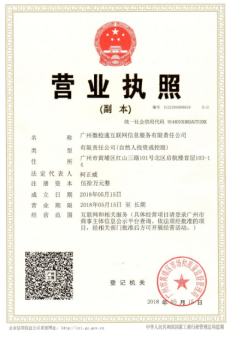
The companies registered by students


Award of network security technology competition

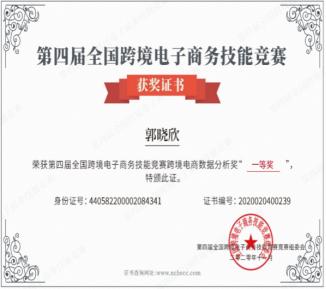
Award of e-commerce business competition
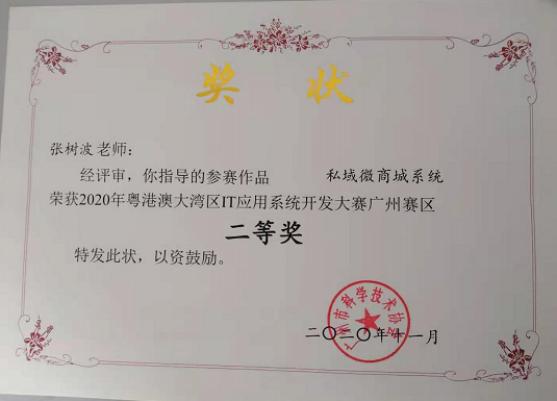
Award of e-commerce technology competition
(3)major courses
programming foundations and programming language, computer networks, database principles and applications, Object-Oriented Programming, Web development technology, Mobile development technology, Introduction to management, Principles of Economics, Internet Marketing, E-commerce operation, Applied Statistics, Business intelligence and data mining, Big data analysis technology.
(4)professional qualifications
Certified E-Commerce Specialist, Senior Certified E-Commerce Specialist, Data analysts.
(5)Typical Career orientations
① Planning, design, development and maintenance of e-commerce platform and other engineering and technical work, the typical positions includes website construction, web design, website analysis, optimization and promotion。
②E-commerce operation project planning, the typical positions includes network marketing, network promotion, customer relationship management, e-commerce project management, etc.
③Data collection and analysis, the typical positions are data collection, data analysis and business data mining, etc.
4.Software Engineering: Facing the needs of information and software industry and informatization in various industries, this major cultivates high-quality application-oriented professionals, who are well-developed morally, intellectually, physically and aesthetically, and master the basic knowledge of natural science and Humanities and Social Sciences, the theoretical basis of computer science and software engineering, and who have the preliminary experience of software engineering practice, the awareness of innovation and entrepreneurship, competition and team spirit, and can be engaged in the analysis, design, and development of software engineering projects, and project management.
5.The major of electronics and information engineering originates from the junior specialty of electronic information engineering technology established by Guangzhou Maritime University in 2000, and was upgraded to undergraduate major with the approval of the Ministry of Education in 2016. After nearly 20 years of rapid development, this major has formed certain advantages and characteristics in the electronics and information industry, especially in the marine electronics and information industry in the Great Bay area of Guangdong, Hong Kong and Macao. It has been rated as the major of industry & university cooperation and collaborative education of the Ministry of Education, the strong characteristic discipline of the promotion plan of universities of Guangdong Province, the marine big data and autonomous learning robot of the Department of Education of Guangdong Province engineering technology development center, the experimental teaching demonstration center of Guangdong Province, the reform specialty of teaching research and teaching reform in Guangdong Province, the characteristic specialty of Guangzhou Maritime University, and the popular specialty transferred to the specialty in the University, etc.
This major cultivates the basic knowledge and application ability of electronic technology and information system. The graduates are mainly oriented to the electronics and information industry in Bay area of Guangdong, Hong Kong and Macao, especially the marine electronics and information industry. They are engaged in the integration of various electronic equipment and information systems, product design, process manufacturing, application development and technology management.
6.Internet of things engineering is a new engineering major newly established by Guangzhou Maritime University, and enrollment began in the autumn of 2021. As an emerging specialty in the exploratory stage, Internet of things engineering belongs to a typical interdisciplinary discipline, involving the knowledge of electronics, computer, measurement and control, communication, software and so on. At present, the global Internet of things industrial system is being established and improved. According to Forrester, an authoritative consulting agency in the United States, the Internet of things will become a trillion industry! In the next decade, the Internet of things will be widely used in transportation, logistics, security, electric power, home, medical treatment, mining, military and other fields. It will bring great changes to the world economy and society. This major is based on the local area, oriented to the local modern Internet of things industry. Technical application-oriented talents who solve engineering problems related to the system and integrated design of the Internet of things with a certain degree of complexity, is cultivated to meet the needs of various fields of the local national economy.
III. Faculty
1. Tian Yubo, Ph.D, Professor, Ph.D student supervisor. He has long been engaged in teaching and scientific research on rapid modeling and optimal design of complex microwave components based on surrogate models exploiting deep learning and broad learning. In 2008, 2012 and 2018, he won, respectively, excellent young backbone teacher of "Qinglan Project" in Jiangsu Universities, young and middle-aged academic leader of "Qinglan Project" in Jiangsu Universities, and excellent teaching team leader of "Qinglan Project" in Jiangsu Universities. Also, he won the Nomination award of the First "top ten graduate tutors" in Jiangsu Province. Now, he is charge of three Provincial Excellent Courses and serves as vice chairman of underwater communication professional committee of Jiangsu Communication Society. He heads many research projects, including National Natural Science Foundation of China and the general project of Jiangsu province Key R&D Plan. He has published more than 100 papers in IEEE Transactions on Antenna and Propagation, Chinese Journal of electronics and other academic journals and international conferences, covering more than 50 papers incited by SCI/EI database. He published 3 academic monographs and held more than 30 authorized/declared national invention patents.
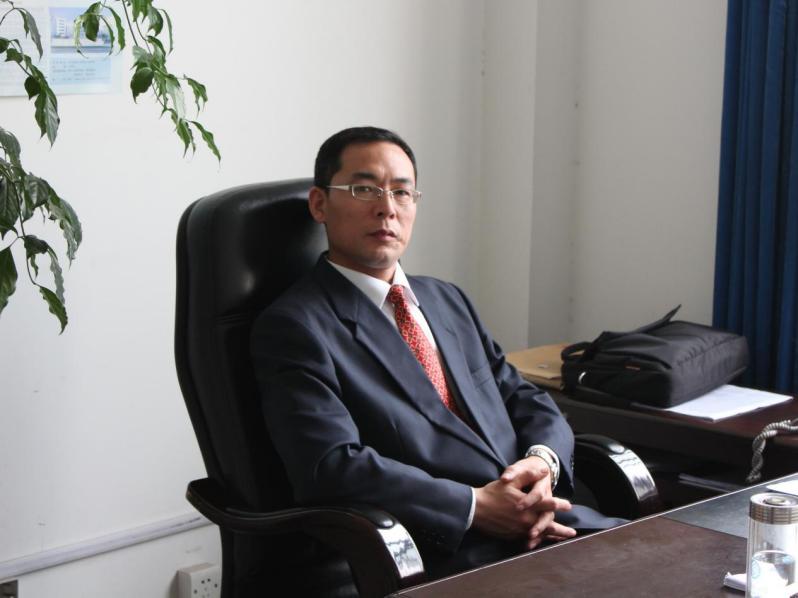
2.Dr. Ming Bai got his bachelor and master degrees in power system and its automation from the Liaoning Technical University in 1986 and 1991 respectively. He got his PhD degree in control theory and control engineering from Jilin University in 2008. Since September 2006, Dr. Bai has been at Guangzhou Maritime University, where he was formally a professor. Now, Prof. Bai was formally the head of the School of Computer Science and Information Engineering. His research interests are Power system automation, Communication and navigation, Artificial Intelligence.
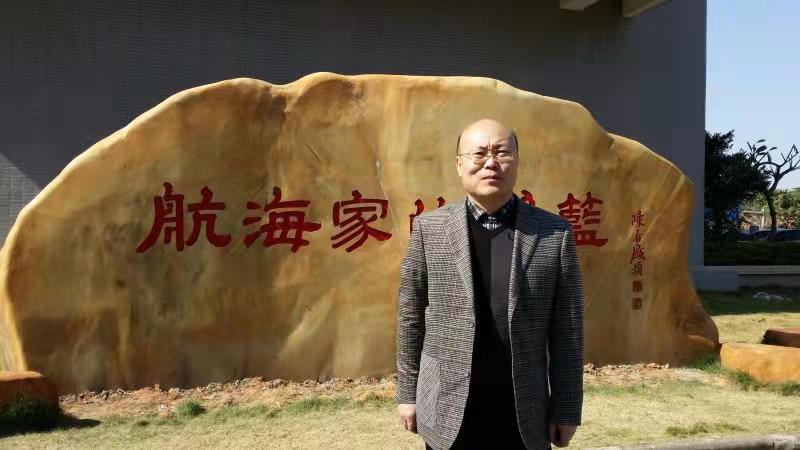
3.Professor Huang Haibin, received his BSc and MSc degree from Guangxi Normal University in 1985 and 1999, respectively, and PhD degree majored in Computer Applied Technology from Central South University in 2008. He joined Guangzhou Maritime University in 2014, serving as a professor with the Department of Computer Science attached to School of Computer Science and Information Engineering. He has obtained a number of research grants, including 2 provincial natural science foundation projects, and worked on several other projects as a principal member. His current research interests include Complex networks, Pattern recognition and Bioinformatics. He has published more than 30 academic papers in international journals.

4. Shu-Bo Zhang is currently serves as a professor with the Department of Electronic Commerce of Guangzhou Maritime University. He is a senior member of the China Computer Federation, his current research interests include the area of machine learning, pattern recognition. He has leaded or participated in several research projects, published more than 20 papers and obtained 3 software copyrights.
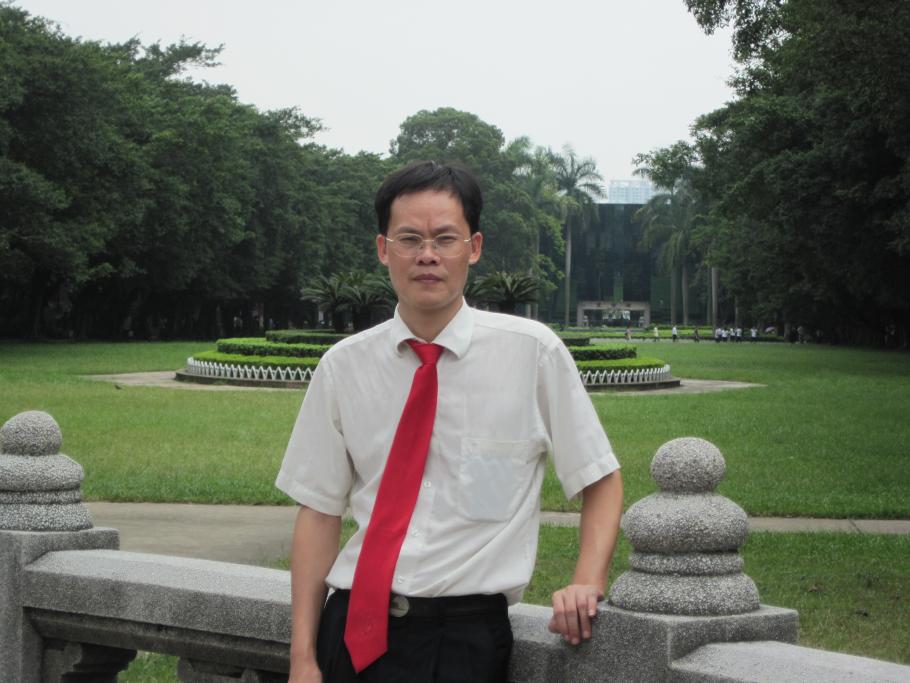
5.Huang Feijiang is a professor in the Department of Communication Engineering at School of Information and Communication Engineering. He received a M.S. degree in circuit and system from the Guangxi Normal University in 2003 and a Ph.D. in astrometry and celestial mechanics from the Graduate University of Chinese Academy of Sciences in 2009. He engaged in postdoctoral research in instrument science and technology of the National University of Defense Technology from 2010-2015. His main research interests include satellite two-way time synchronization, satellite clock bias prediction, satellite navigation and inter-satellite links.
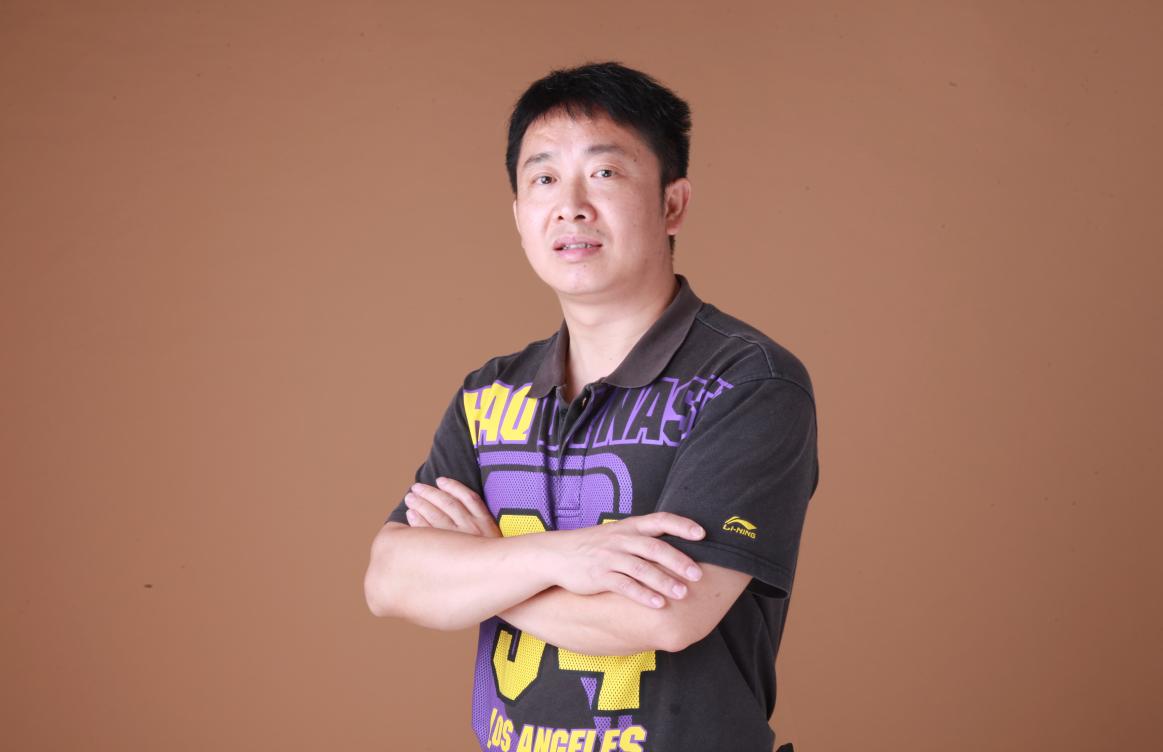
6.Hui Cao, Professor, Ph.D. His Academic Areas: Optical fiber communication; Semiconductor lighting
Research Interests: Optical amplifier; optical signal processing; fiber Bragg grating; health lighting
His main research thrust revolves around optical amplifier, optical signal processing, fiber Bragg grating and health lighting, such as fiber parametric amplifier, parametric process, optical filtering, all-optical code conversion, all-optical signal processing, fiber grating design, fiber grating filter design, ultra-high channel number fiber grating design, health lighting source design and control etc..
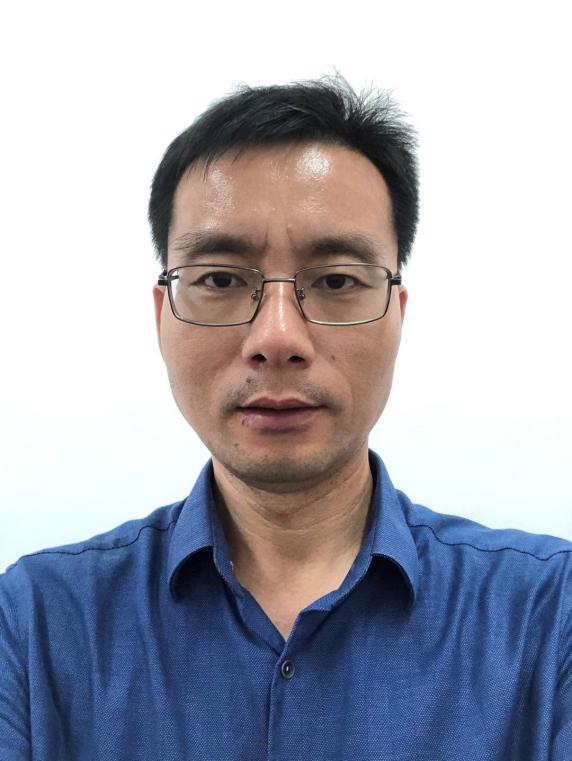
7. Professor Yang Guoyan works in the Department of Computer Science at School of Information and Communication Engineering. She is a supervisor of MA students. She received a M.S. degree in computer science and technology in 2007 and a Ph.D. in computer application both from Harbin Engineering University in 2012. She served as a visiting scholar at the University of Sussex in the UK from 2017 to 2018. Her main research interests include intelligent transportation, Internet of Vehicles communication and transportation big data.
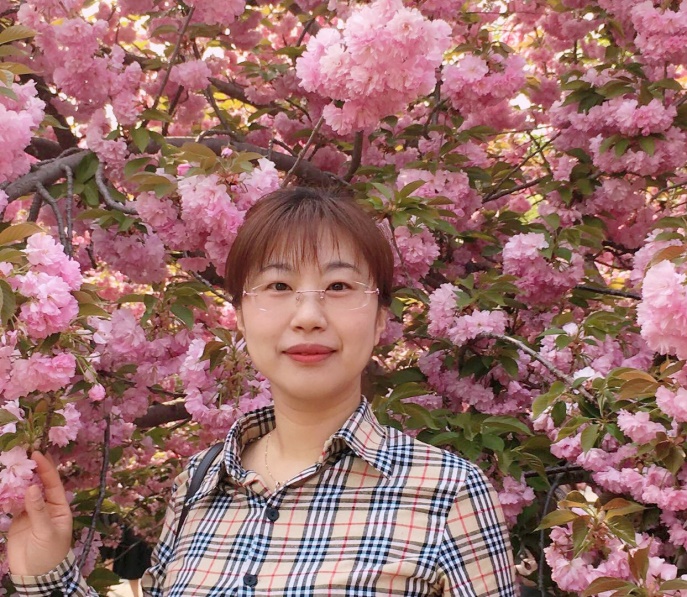
8. Yu Geng, graduated from Beijing University of Aeronautics and Astronautics, devoted himself to the research on civil aviation operation technology, and his research interests focus on civil aviation operation automation and air traffic management. Presently, he is mainly responsible for the program entitled "Research on single pilot system of civil aviation aircraft based on Guass algorithm" supported by the National Natural Science Foundation of China.
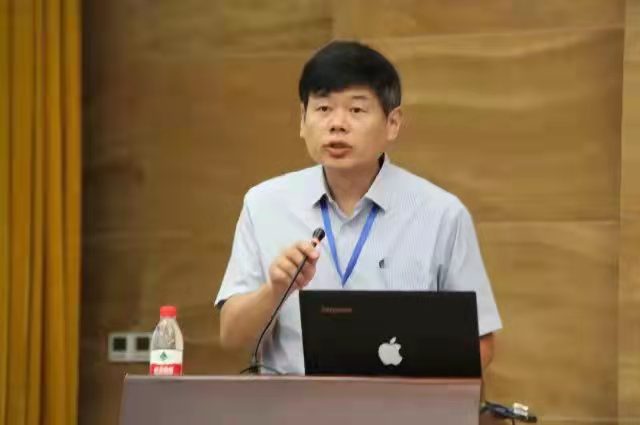
9. Xiao Mingming, male, born in September 1972, doctor, professor and master supervisor. Graduated from Hunan University in June 1996 with a bachelor's degree in engineering; He graduated from Sun Yat sen University in June 2003 and June 2013 with master's degree and doctor's degree in engineering respectively. From 2010 to 2011, he worked as a visiting scholar at Northwestern University (USA). He has been teaching in Guangzhou Maritime University since December 2019. Mainly he engaged in the teaching and research of Internet of things engineering, electronic information engineering, and communication engineering. Research interests include artificial intelligence, machine learning, Internet of things and computer vision technology.
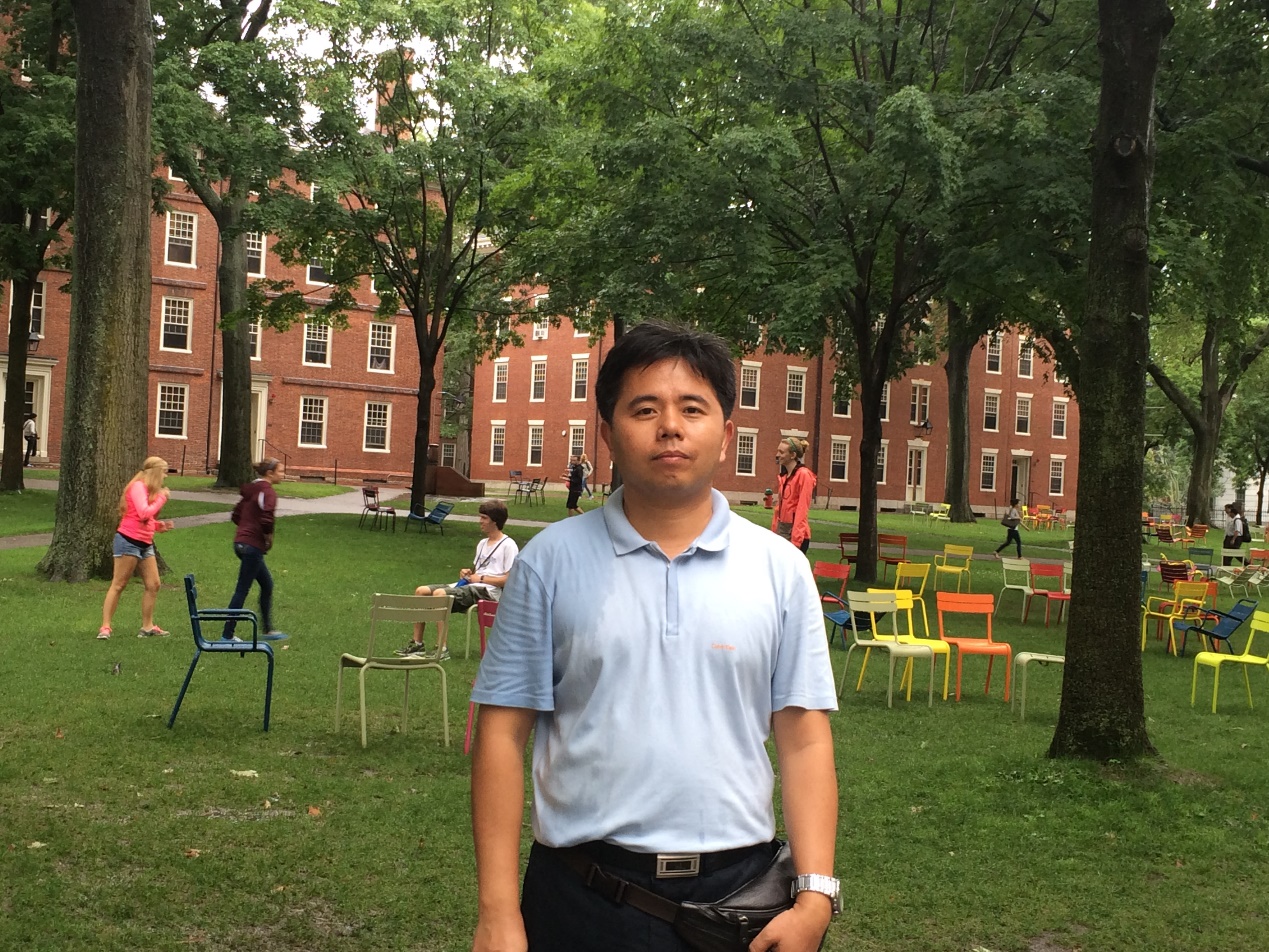
10. Yang Qing was born in 1969, is a professor, Ph.D., master supervisor and young backbone teacher of Hunan province, he had been a visiting researcher at the University of Alberta, Canada. Is an expert on the establishment of evaluation committee in colleges and universities and a member of Hunan Computer Federation, now he teaches in Guangzhou Maritime University, China,leads a team of researchers and students in the areas of network and information Security, intelligent information processing. He has published more than 40 academic papers, and more than 10 highly reputed SCI/EI indexed journals/ conferences articles and his research has been funded by the national 863 plan project, national or Hunan province Natural Science Foundation Committee and ministry of education of China. He has won the first prize and the third prize of provincial higher education teaching achievement award and the second prize of Hunan public security technical investigation project evaluation.

11. Liu Haiying, Professor of the College of Information Science and Communication ,Guangzhou Maritime University.Graduated from Xidian University, has nearly 30 years of information system design, products development and technical research experience. She has solid theoretical knowledge and engineering experience. Research interests include application software design, cognitive wireless network, artificial intelligence application, GIS application and so on. as project leader or participated in more than 20 large and medium-sized projects at the provincial and ministerial levels of research, She has rich research experience closely combined with engineering and technical practice, and achieved a many research results. Won the national, provincial and ministerial scientific and technological progress awards a total of 5 times, two patents, some projects won the National Science and Technology Progress Award and a number of awards in the military. She developed numbers of systems are serving the country's information construction,and some systems exports to produce economic benefits.
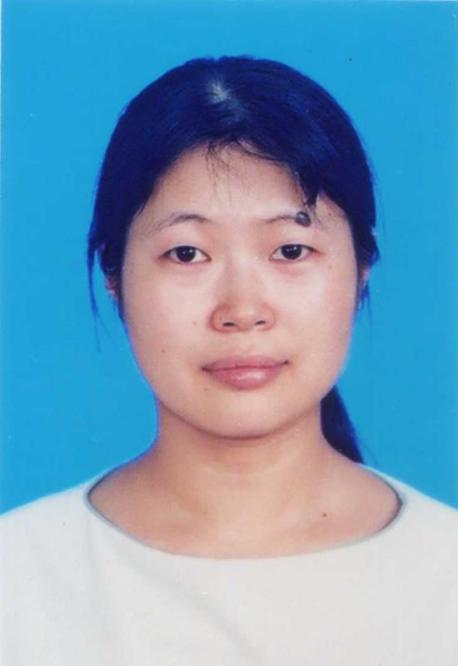
IV. Facilities
1. Electronic Technology Laboratory
The electronic technology laboratory was built in 2008 with special funds from the central government to support the development of local colleges and universities. The laboratory covers an area of 141 square meters with a total investment of 461,200 yuan.
As one of the open laboratories of the college, the laboratory can be used for teaching and scientific research of electrical and electronic internship, course design and graduation design for majors of communication engineering and electronic information engineering.
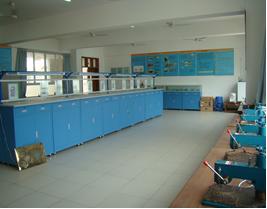
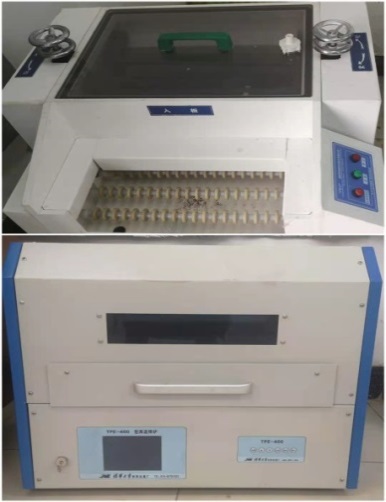
2. Analog electronics Laboratory
The analog electrical laboratory was built in 2011 with special funds from the central and local universities. The laboratory covers an area of 140 square meters with a total investment of 652,500 yuan.
The laboratory is responsible for the basic experimental teaching of communication engineering, electronic information engineering, ship electronic and electrical engineering, navigation technology and other majors.
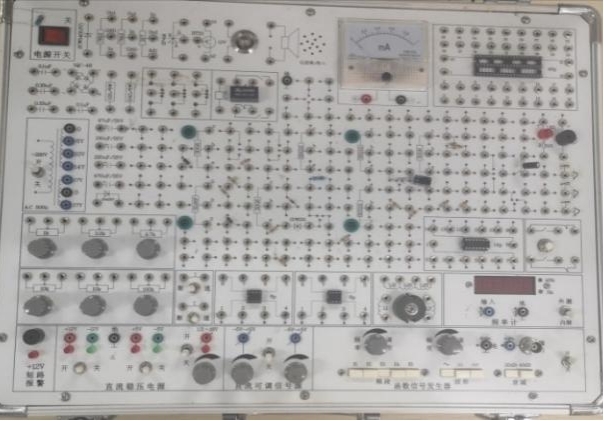

3. Digital Electrical Laboratory
The digital electrical laboratory was built in 2011 with special funds from the central and local universities. The laboratory covers an area of 135 square meters with a total investment of 445,500 yuan.
The laboratory is responsible for computer science and technology, communication engineering, electronic information engineering, software engineering, marine electronic and electrical engineering and other related digital electronic technology courses experiment, as well as electronic system comprehensive design, SCM principle course design, graduation design and other practical links of hardware design and debugging.
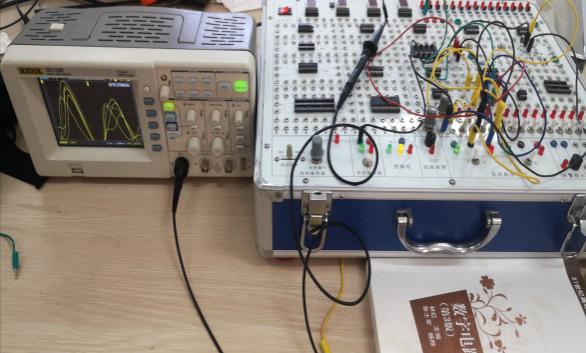
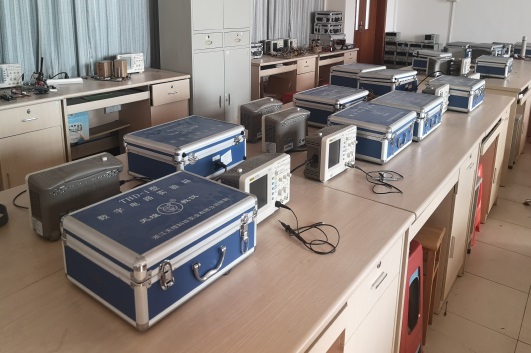
4. EDA laboratory
EDA Laboratory was constructed and completed in 2018 by the special fund of Guangdong Provincial "Information and Communication Engineering" Strong Characteristic Key Discipline.The laboratory covers an area of 139 square meters with a total investment of 1,116,200 yuan.
The laboratory is mainly for the experimental teaching of communication engineering, electronic information engineering and other majors.


5. Communication integrated laboratory
The communication Comprehensive Laboratory was built with special funds from the central Government to support the development of local colleges and universities, and was completed in 2010.The laboratory covers an area of 272 square meters with a total investment of 3.325 million yuan.
The laboratory is mainly used for experimental practice teaching of communication engineering, electronic information engineering and other majors, as well as cognition practice for students of other majors.
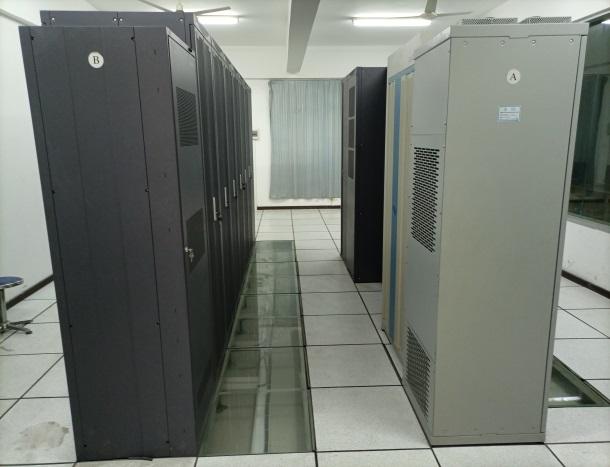
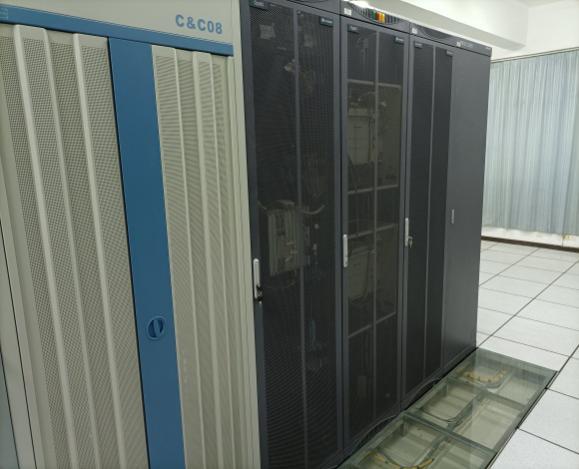
6. Communication Principle Laboratory
The communication principle laboratory was built in 2017 with special funds from the central government to support the development of local colleges and universities. The laboratory covers an area of 135 square meters with a total investment of 1.3830 million yuan.
The laboratory is for the experimental teaching of communication engineering, electronic information engineering and other majors.
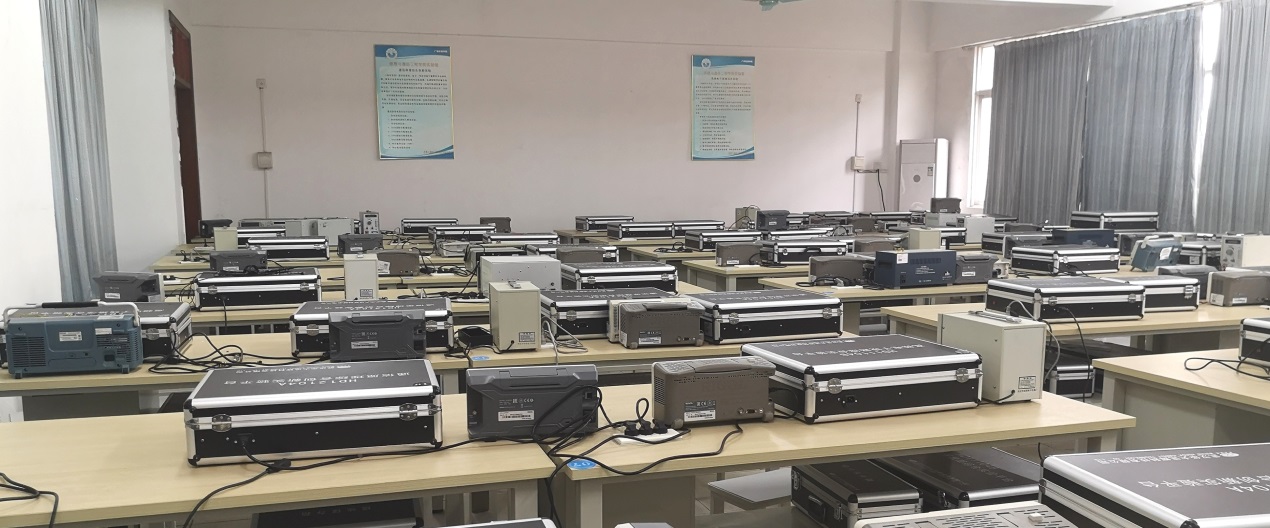
7. Optical fiber Communication laboratory
Optical fiber Communication Laboratory was constructed and completed in 2018 by the special fund of Guangdong Provincial "Information and Communication Engineering" Strong Characteristic Key Discipline.The laboratory covers an area of 99 square meters with a total investment of 210,800 yuan.
The laboratory is mainly used for experimental teaching of communication engineering and other majors.

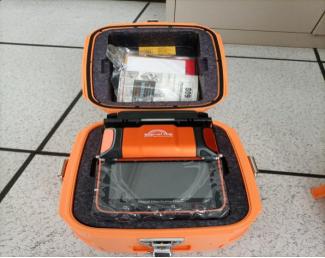
8. Computer assembly and maintenance laboratory
Computer assembly and maintenance laboratory is a laboratory built in 2008 with special funds from the central government to support the development of local colleges and universities. The laboratory covers an area of 138 square meters with a total investment of 612200 yuan.
The laboratory mainly undertakes the experimental teaching of the public elective course computer assembly and maintenance in the whole school.
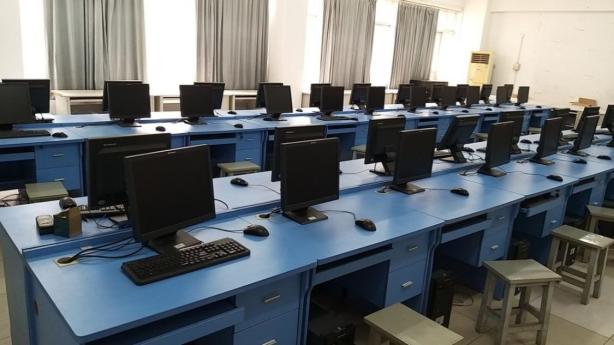
9. Microcomputer Principle and Interface Laboratory
The Microcomputer Principle and Interface Laboratory was constructed and completed in 2018 by the special fund of guangdong Provincial Information and Communication Engineering Strong Characteristic Key Discipline.The laboratory covers an area of 139 square meters with a total investment of 735,400 yuan.
The laboratory is mainly used for the experimental practice teaching and scientific research of communication engineering, electronic information engineering and other majors, as well as for the experimental practice teaching of students from other majors.


10. Computer Composition Principle Laboratory
The Principle Laboratory of Computer Composition is a construction laboratory for special funds for the development of local universities. It was built in 2017.The laboratory covers an area of 140 square meters, with a total investment of 749,800 yuan.
The laboratory is available for experimental internships in related courses in majors such as computer science and technology.

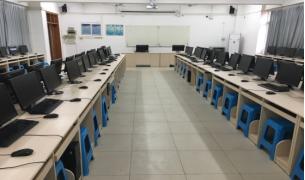
11. The Internet of Things Technology Lab
The Internet of Things Technology Laboratory is a construction laboratory for special funds for central support in the development of local colleges and universities. It was built in 2015.The laboratory covers an area of 135 square meters, with a total investment of 467,300 yuan.
The laboratory mainly provides experimental teaching services for communication engineering, electronic information engineering, computer science and technology, and can also be used as a place for scientific research, development and graduation design.
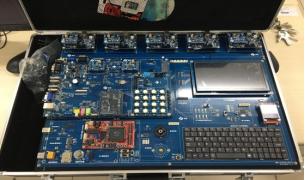
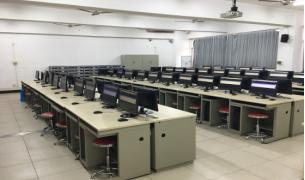
12. CISCO Laboratory
CISCO Laboratory is a construction laboratory for special funds for the development of local universities. It was built in 2008.The laboratory covers an area of 141 square meters, with a total investment of 262,200 yuan.
The laboratory is available for experiments in related courses in computer science and technology, communication engineering, e-commerce, electronic information engineering and other majors, and is one of the open laboratories of the college.
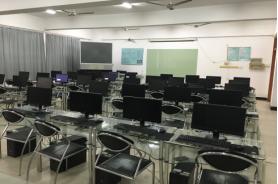
13. Business information technology laboratory
The business information technology laboratory is a laboratory built with special funds from the central government to support the development of local colleges and universities. It was built in 2011. The laboratory covers an area of 252 square meters with a total investment of 2.712 million yuan.
The laboratory can be used for computer science and technology, e-commerce, software engineering and other majors to carry out experiments, internships and other teaching and scientific research of relevant courses.
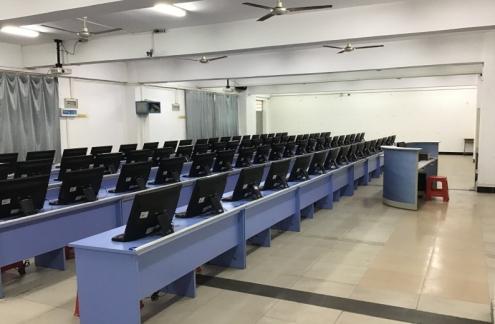
14. Computer network basic laboratory
Computer network basic laboratory is a laboratory built in 2008 with special funds for the development of local colleges and universities supported by the central government. The laboratory covers an area of 252 square meters with a total investment of 1395200 yuan.
The laboratory mainly undertakes experimental teaching of computer science and technology, communication engineering, e-commerce, electronic information engineering and software engineering.

15. Generic cabling laboratory
Generic cabling laboratory is a laboratory built with special funds from the central government to support the development of local colleges and universities. It was built in 2008. The laboratory covers an area of 139 square meters with a total investment of 413800 yuan.
The laboratory is mainly used for experimental teaching of computer science and technology, communication engineering, e-commerce, electronic information engineering, software engineering and other majors. It can also be used for cognitive practice of students of other majors.


16.Cloud platform laboratory
Cloud platform laboratory is a laboratory built with special funds from the central government to support the development of local colleges and universities. It was built in 2015. The laboratory covers an area of 138 square meters with a total investment of 464100 yuan.
The laboratory can be used for computer science and technology, e-commerce, software engineering and other majors to carry out experiments, internships and other teaching and scientific research of relevant courses.

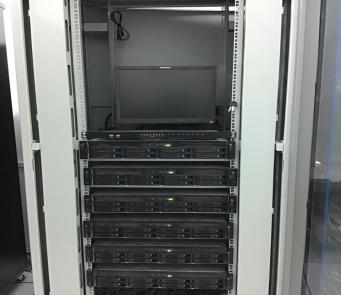
17. Digital media laboratory
Digital media laboratory is a laboratory built in 2015 with special funds from the central government to support the development of local colleges and universities. The laboratory covers an area of 138 square meters with a total investment of 456100 yuan.
The laboratory mainly undertakes the experimental teaching of computer science and technology, communication engineering, e-commerce and electronic information engineering.
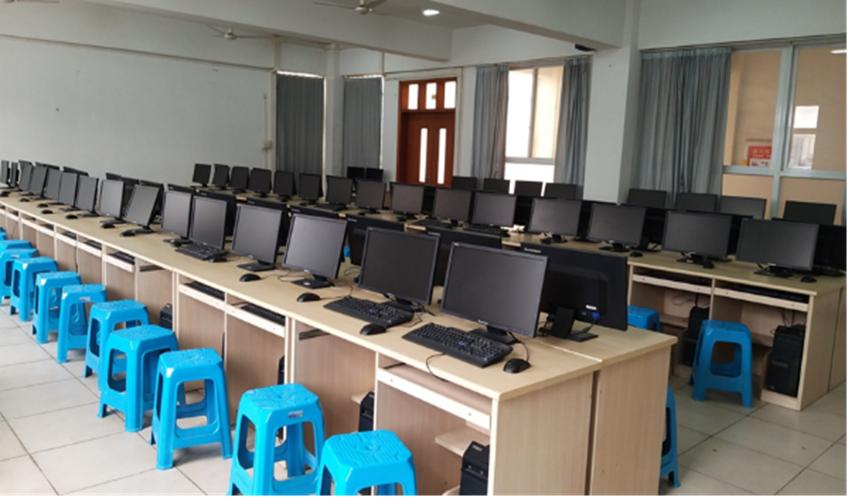
18. Software engineering and testing laboratory
Software engineering and testing laboratory is a laboratory built in 2017 with special funds from the central government to support the development of local colleges and universities. The laboratory covers an area of 135 square meters with a total investment of 584400 yuan.
The laboratory mainly undertakes the experimental teaching of computer science and technology, e-commerce and software engineering.
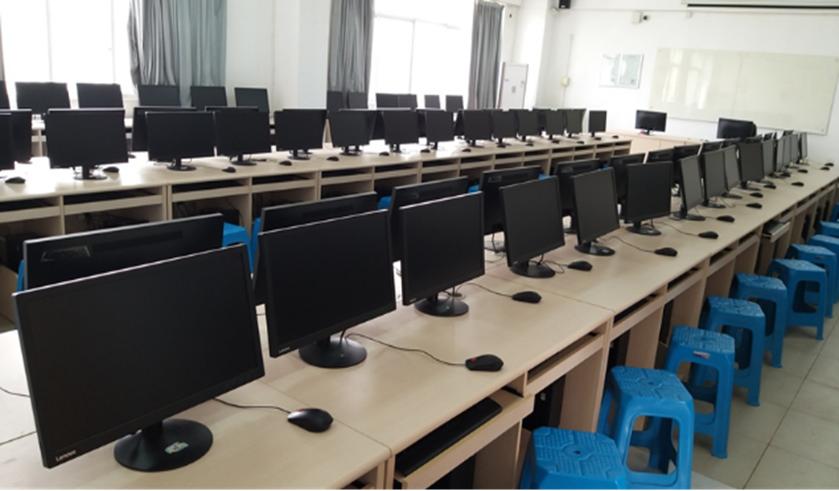
19. Big data laboratory
Big data laboratory is a laboratory built with special funds from the central government to support the development of local universities. It was built in 2017. The laboratory covers an area of 135 square meters with a total investment of 1.993 million yuan.
The laboratory can be used for computer science and technology, e-commerce, software engineering and other majors to carry out experiments, internships and other teaching and scientific research of relevant courses.
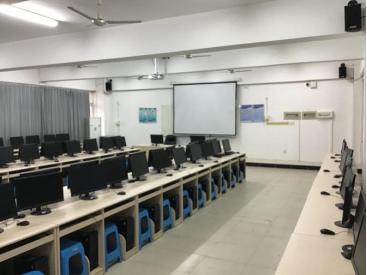
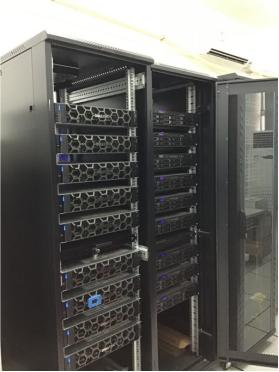
20. Server room
The server room is built in room 604 of the information building, covering an area of about 25 square meters, with a total equipment value of about 4 million yuan. It is the computer room for the school of information and communication engineering to centrally place and manage servers.
The computer room mainly provides computing, management and storage for marine big data and autonomous learning robot engineering technology development center, pattern recognition and traffic big data laboratory, big data laboratory, cloud platform laboratory and e-commerce laboratory.
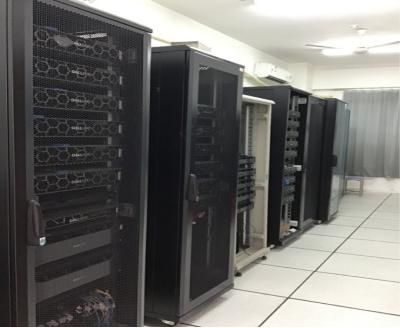
21. The Embedded Technology Laboratory
The Embedded Technology Laboratory is a laboratory for special central support for the development of local universities. It was built in 2007.The laboratory covers an area of 135 square meters, with a total investment of 1.032 million yuan.
The laboratory mainly provides experimental teaching services for computer science and technology, communication engineering, and electronic information engineering, and can also be used as a place for scientific research, development and graduation design.
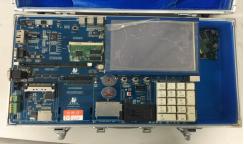

V. Academics&Scientific Research
u Scientific research project
[1] Yu Geng, Research and simulation verification of civil aircraft one-man crew based on Guass pseudo-spectral algorithm, National Natural Science Foundation of China (General Project), 2021.1, 630,000¥.
[2] Ding Zu-chun, Nighttime offshore IR target detection and recognition based on R-CNN machine learning and ALSE, 2021 Key scientific research platform and project of Guangdong Provincial Department of Education for ordinary universities, 2021.1,100,000¥.
[3] Lin Fu-huo, Research on identification technology of individual travel purpose based on traffic Big data, 2021 Key scientific research platform and project of Guangdong Provincial Department of Education for ordinary universities, 2021.1,100,000¥.
[4] Huang Fei-jiang, Research on Beidou and AIS information Fusion Algorithm for intelligent Shipping, 2021 Key scientific research platform and project of Guangdong Provincial Department of Education for ordinary universities, 2021.1,50,000¥.
[5] Zou Cai-rong, Portable hearing screening system and intelligent hearing rehabilitation AIDS r & D and application demonstration, National Science and Technology Program,2020.1,25,240,000¥.
[6] LV,Zhi-sheng, Research on detection method of weak underwater acoustic signal under strong noise background, 2020年广州市科技项目, 2020.4,200,000¥.
[7] Feng Bin, Exploration on the construction of ideological and Political courses with characteristic subjects of information and communication Engineering under the "Internet +" environment, Education Science Planning project of Guangzhou Education Bureau in 2020, 2020.10.9, 40,000¥.
[8] Tan Li, Research on underwater acoustic channel parameter estimation method based on intelligent optimization algorithm, 2021 Key scientific research platform and project of Guangdong Provincial Department of Education for ordinary universities, 2021.1, 7000¥.
[9] Yu Geng, Beidou short message data support system technical consultation service, 2020.
[10] Cao Yu-jun, Research and clinical application of human cancer genome based on big data, 2019.
u Research papers:
[1] J.-L. Zhong, novel copy-move forgery detection algorithm via two-stage filtering ,Digital Signal Processing (SCI),2021
[2] J.-L. Zhong,A fast forgery frame detection method for video copy-move inter/intra-frame identification,Journal of Ambient Intelligence and Humanized Computing (SCI),2021
[3] J.-L. Zhong,Effective and Efficient Pixel-level Detection for Diverse Video Copy-Move Forgery Types,Pattern Recognition,2021
[4] Ding Zu-chun,Vehicle type and sub-type recognition by lamp pairs distance and lamp contour in ITS,IEEE International Conference on Computer and Communication Systems 2020(ICCSNT),EI,2020.11.14
[5] Ding Zu-chun,Tiny IR Maritime Object Detection on the Sea Surface by Colorful Noise Cancellation,IEEE International Conference on Computer and Communications 2020(ICCC),EI,2020.12.11
[6] Cao Yu-jun,Research and Realization of Mobile Electronic Menu Based on Android System, TEST Engineering & Management,EI,2020.05
[7] Feng Bin, Design and implementation of pearl River inland Waterway sensing platform, China Water Transport, 2019(7):70-71.
[8] Zhang Wei-min, Application of ControlNet Network for F&G System in offshore Oil Platform, Chemical automation and instrumentation, 2019.4
[9] Zhang Wei-min, Realization of digital network monitoring of rubber tire production information, Chemical automation and instrumentation, 2019.5
[10] Qin Zong-rong,Characterization of k-Subconnected Graphs,Applied Mathematics and Computation,2019.8
[11] Ding Zu-chun, Automobile Dashboard Object Recognition for Interested Vehicle in ITS,IEEE 4th Advanced Information Technology, Electronic and Automation Control Conference 2019(IAEAC),EI, ,2019.12
[12] Feng Bin, Design and Implementation of service robot Control System based on Arduino, Journal of Guangzhou Maritime University , 2018.3
[13] Yin Dong-mei, Development of ship monitoring and sea traffic flow control system based on Beidou satellite, SHIP SCIENCE AND TECHNOLOGY, 2018.9(40):43-45
[14] Huang Hai-bin,On Coupling of Multi-Traffic System and Accessibility of the Transit Networks, Advances in Engineering Research, Volume 170,2018.7
[15] Liu Shi-an, Compact Dual-Band Bandpass Filter with Small Center Frequency Ratio, Chinese Journal of Electron Devices, 2018.2
[16] Lv Zhi-sheng, Blind Detection of Audio Forgery Based on ENF Neighborhood Correlation Coefficient, JOURNAL OF APPLIED SCIENCES -Electronics and Information Engineering,2018.3
u Patents and Software Copyrights
[1] Feng Bin, The invention relates to a waterway data acquisition system and a waterway information management system, 2020, Utility patent.
[2] Feng Bin, The method and system of information fusion engine based on ship network gateway, A patent for invention.
[3] Huang Fei-jiang, Grey model and chaotic time series combined satellite clock prediction software V1.0,2021, Software Copyrights.
[4] Feng Bin, Inland waterway perception system software V1.0, 2020, Software Copyrights.
[5] Ding Zu-chun, General train vehicle power distribution cabinet meter intelligent detection software, 2020, Software Copyrights.
[6] Ding Zu-chun, Power distribution cabinet display data machine vision interpretation software, 2020, Software Copyrights.
[7] Ding Zu-chun, License plate location system under high noise, 2020, Software Copyrights.
[8] Zhang Wei-min, Guangzhou-aviation rail transit tunnel construction axis warning software V1.0, 2020, Software Copyrights.
[9] Zhang Shu-bo, Guanghang food information recommendation system, 2020, Software Copyrights.
VI. International Cooperation
School of Information and Communication Engineering attaches great importance to international exchanges and cooperation, actively expands new areas of international exchanges, and pays attention to promoting the promotion of teaching, scientific research and talent training of the college through international exchanges. The School has a competent teaching force. It currently has a faculty of 84 members, among whom 11 are professors, 26 are associate professors, 17 have overseas study and work experience。The School is currently organized into 4 departments: Department of Computer Science and Technology, Department of Software Engineering, Department of Electronic Commerce, Department of Communication Engineering.
The School has established good relationships with overseas universities like Macau University of Science and Technology and Macau City University on research collaborations of artificial intelligence and marine Internet of Things. The computer science and technology major and the University of Technology Sydney have carried out a joint master's program ("3+2 international class"). Students participating in the program can obtain an undergraduate diploma from Guangzhou Maritime University after completing the corresponding credits and a master's degree certificate from the University of Technology Sydney. Now It has graduated 3 years of students. In addition, the School and Finland's Central University of Applied Sciences jointly organized a computer science and technology undergraduate education project which was approved. This is the first Sino-foreign cooperative education project officially approved by the Ministry of Education to be included in the enrollment plan.
Copyright:Guangzhou Maritime University All Rights Reserved粤ICP备15080873号 |